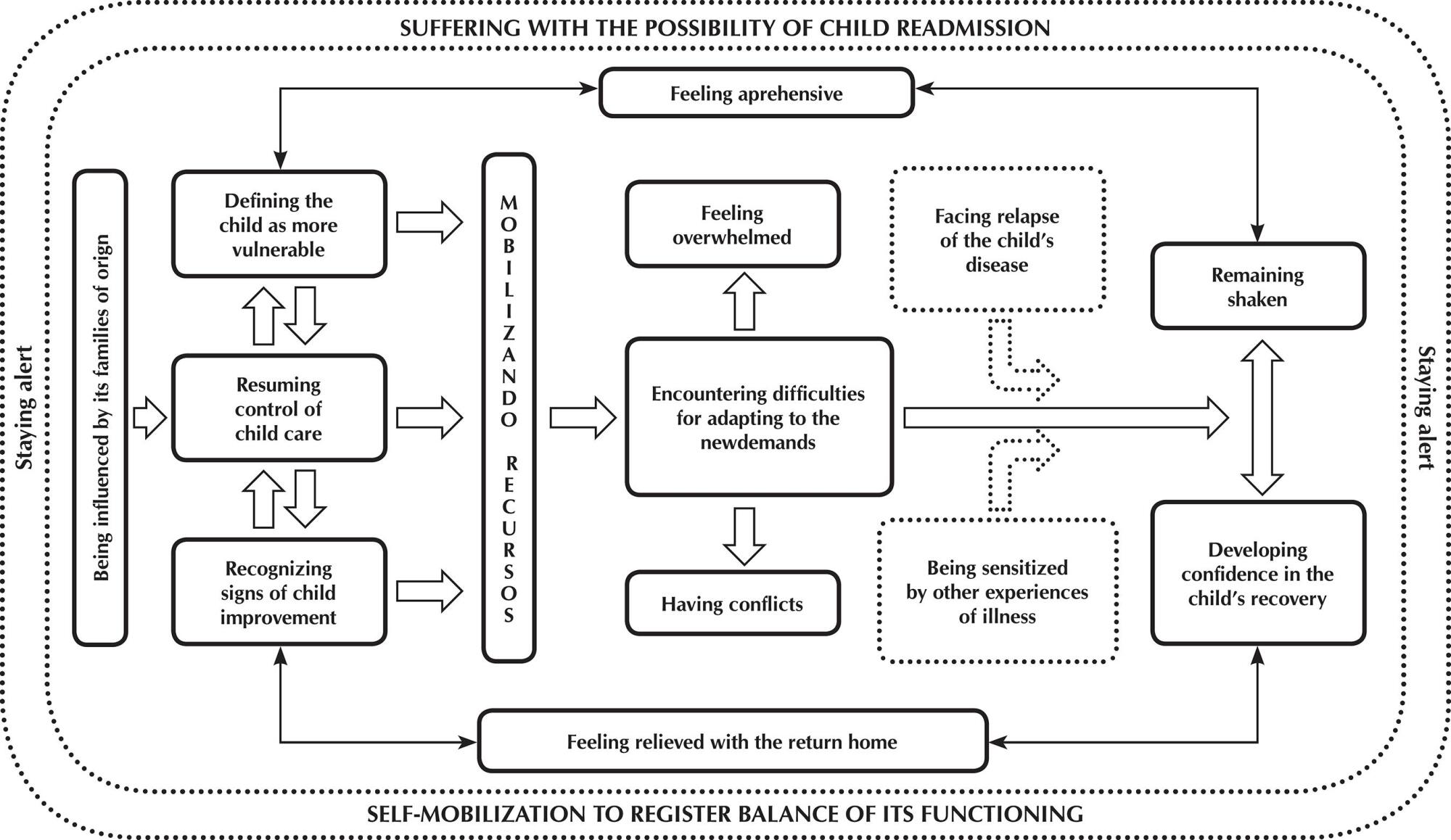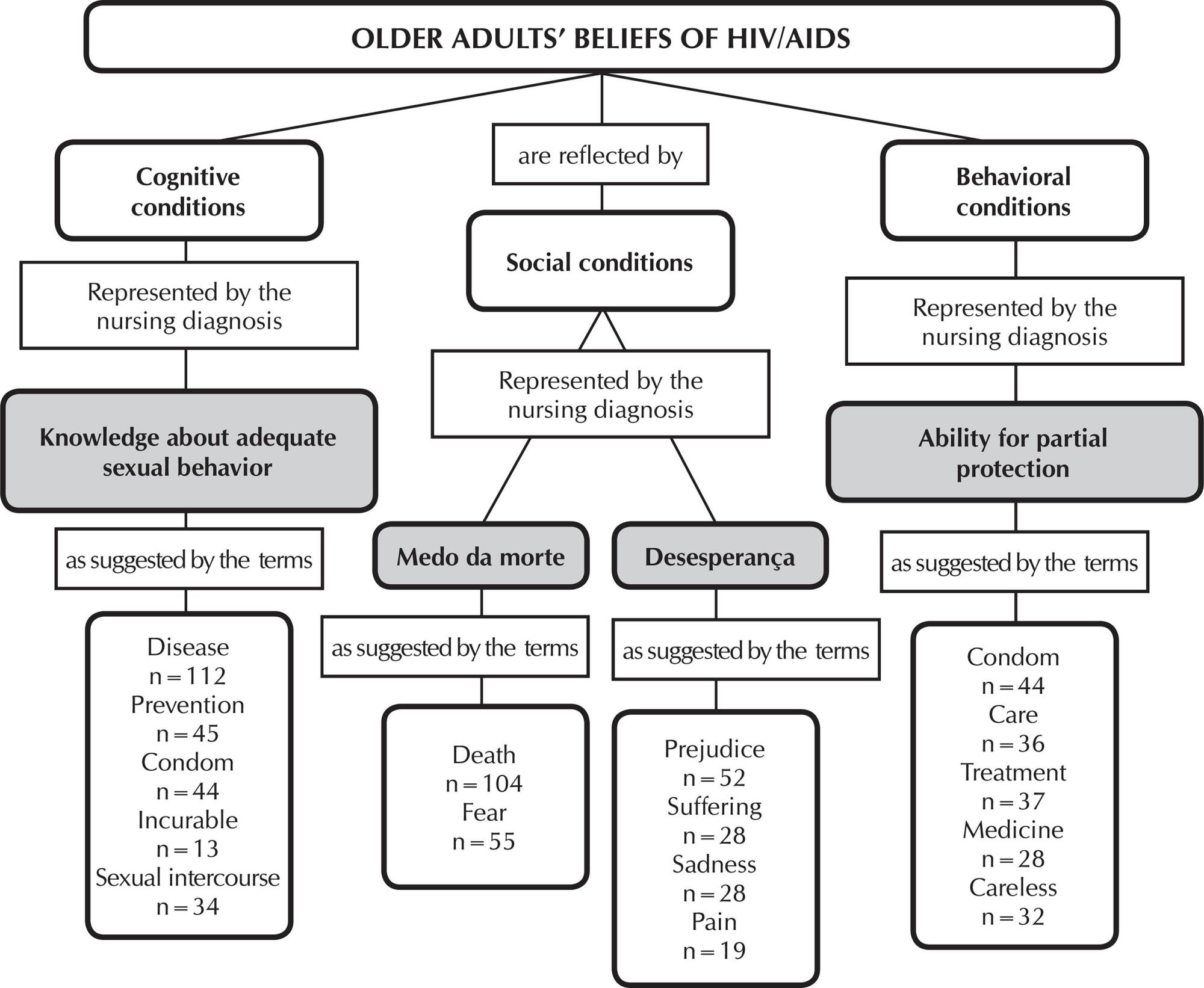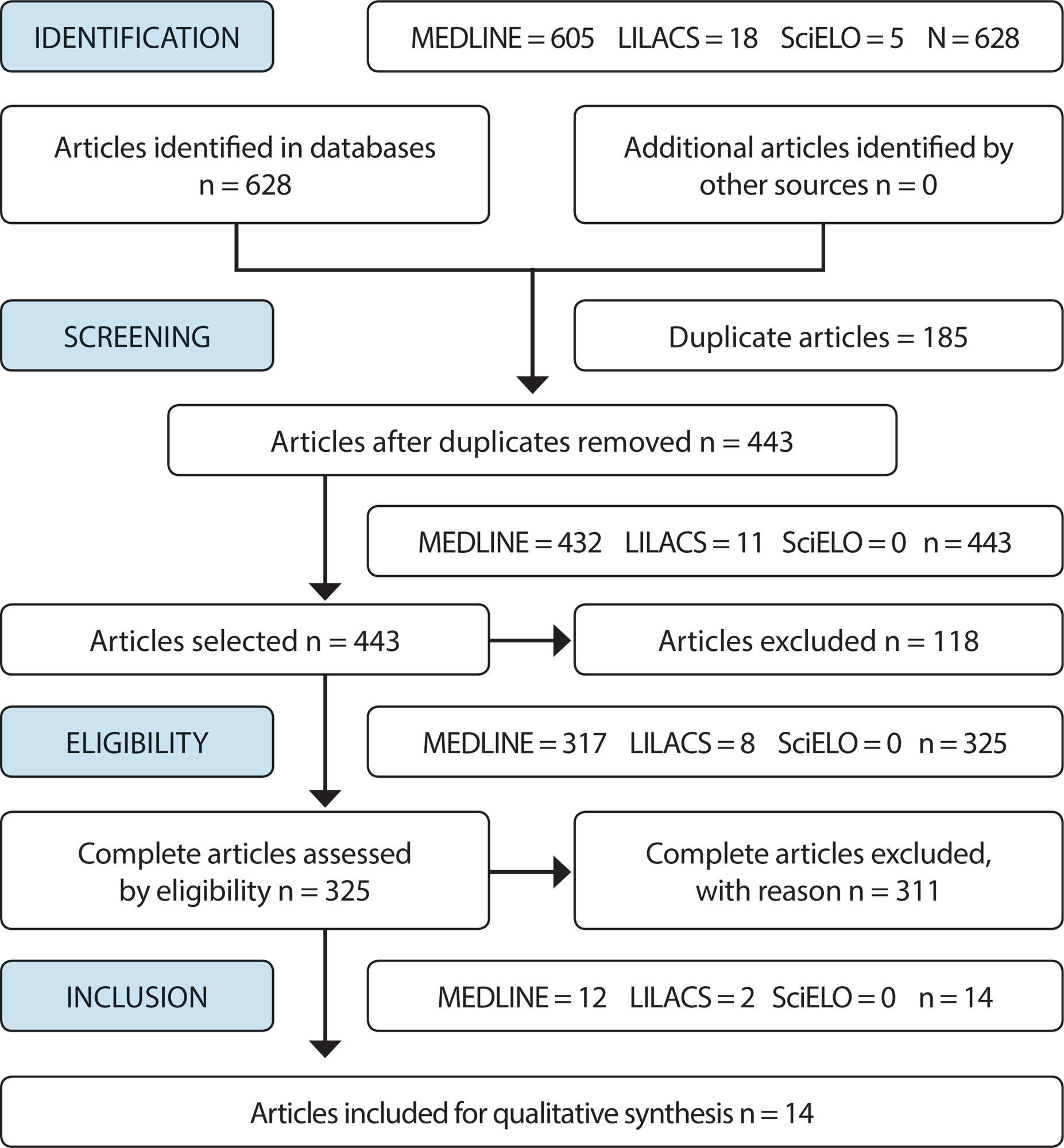-
RESEARCH
Prevalence and factors associated with smoking among tobacco growers in southern Brazil
Revista Brasileira de Enfermagem. 2015;68(4):603-608
01-01-2015
Abstract
RESEARCHPrevalence and factors associated with smoking among tobacco growers in southern Brazil
Revista Brasileira de Enfermagem. 2015;68(4):603-608
01-01-2015DOI 10.1590/0034-7167.2015680405i
Views0See moreABSTRACT
Objective:
identify the prevalence and factors associated with smoking in tobacco growers.
Method:
descriptive, cross-sectional research. Data collection occurred in 2012 through household survey and interviews, including application of a structured instrument and scale Fargeström.
Results:
there were 100 growers included, average age of 46,9 ± 10,8 years; 90(90%) married; 72(72%) white, average family composition 3,7±1,1 people; median number of children 3(1-3), and the average study time 6±2,5. The prevalence of smoking among tobacco growers was 17%, which had less education (p=0.010) and fewer people in the household (p=0.049).
Conclusion:
the prevalence of smoking among tobacco growers was higher than the national average, but the nicotine dependence was low, which can facilitate the smoking cessation process. Highlights the need to implement a program to control smoking among tobacco growers.
-
RESEARCH
The family living the child recovery process after hospital discharge
Revista Brasileira de Enfermagem. 2015;68(4):594-602
01-01-2015
Abstract
RESEARCHThe family living the child recovery process after hospital discharge
Revista Brasileira de Enfermagem. 2015;68(4):594-602
01-01-2015DOI 10.1590/0034-7167.2015680404i
Views0See moreABSTRACT
Objective:
to understand the meaning attributed by the family to its experience in the recovery process of a child affected by an acute disease after discharge, and to develop a theoretical model of this experience. Symbolic interactionism was adopted as a theoretical reference, and grounded theory was adopted as a methodological reference.
Method:
data were collected through interviews and participant observation with 11 families, totaling 15 interviews. A theoretical model consisting of two interactive phenomena was formulated from the analysis: Mobilizing to restore functional balance and Suffering from the possibility of a child’s readmission.
Results:
the family remains alert to identify early changes in the child’s health, in an attempt to avoid rehospitalization.
Conclusion:
the effects of the disease and hospitalization continue to manifest in family functioning, causing suffering even after the child’s discharge and recovery.

-
RESEARCH
Multiprofessional residency in health: a document analysis of political pedagogical projects
Revista Brasileira de Enfermagem. 2015;68(4):586-593
01-01-2015
Abstract
RESEARCHMultiprofessional residency in health: a document analysis of political pedagogical projects
Revista Brasileira de Enfermagem. 2015;68(4):586-593
01-01-2015DOI 10.1590/0034-7167.2015680403i
Views0See moreABSTRACT
Objective:
To analyze MPRH political pedagogical projects (PPP) developed in the state of São Paulo and identify scenarios that are highly favorable to IPE.
Method:
This was a descriptive exploratory study conducted through document analysis.
Results:
The analysis revealed a heterogeneous scenario regarding the curricula, didactic and pedagogical organization, educational objectives, pedagogical matrices and evaluation systems employed. One of the programs was identified as providing a highly favorable setting for IPE.
Conclusion:
The analysis adequately evaluated IPE in educational settings and found a highly favorable scenario for it, identifying didactic, pedagogical, political and organizational MPRH elements.
-
RESEARCH
Beliefs of older adults about their vulnerability to HIV/Aids, for the construction of nursing diagnoses
Revista Brasileira de Enfermagem. 2015;68(4):579-585
01-01-2015
Abstract
RESEARCHBeliefs of older adults about their vulnerability to HIV/Aids, for the construction of nursing diagnoses
Revista Brasileira de Enfermagem. 2015;68(4):579-585
01-01-2015DOI 10.1590/0034-7167.2015680402i
Views0See moreABSTRACT
Objective:
to know the beliefs of older adults about their vulnerability to HIV/Aids, and to identify nursing diagnoses.
Method:
a field research implemented in Family Health Units, in João Pessoa, Brazil. The sample included 250 older adults of both genders with data collected from April to July of 2011. A Test of Free Word Association was applied using the term HIV/Aids. A content analysis and cross-mapping of the most frequent terms with the International Classification for Nursing Practice, 2011 were performed.
Results:
202 terms were identified in terms, with an overall frequency of 1156. Of the 202 terms, 16 were more frequent and were used to construct the nursing diagnoses. The diagnoses identified were knowledge about appropriate sexual behavior, ability for partial protection, fear of death and hopelessness.
Conclusion:
understanding these beliefs drew from knowledge about factors related to, vulnerability to HIV/Aids aimed at planning health care actions for this population segment.

-
LETTER TO THE EDITOR
Considerations about the manuscript published
Revista Brasileira de Enfermagem. 2015;68(4):577-577
01-01-2015
Abstract
LETTER TO THE EDITORConsiderations about the manuscript published
Revista Brasileira de Enfermagem. 2015;68(4):577-577
01-01-2015DOI 10.1590/0034-7167.20156804c
Views0Re: Chinese auriculotherapy to improve quality of life of nursing team To the Editor,[…]See more -
EDITORIAL
A Pesquisa em Enfermagem e os novos rumos a partir do SENPE
Revista Brasileira de Enfermagem. 2015;68(4):571-572
01-01-2015
Abstract
EDITORIALA Pesquisa em Enfermagem e os novos rumos a partir do SENPE
Revista Brasileira de Enfermagem. 2015;68(4):571-572
01-01-2015DOI 10.1590/0034-7167.2015680401i
Views0Após quase meio século do início da pesquisa em Enfermagem no Brasil, ainda há necessidade de investimentos para considerá-la consolidada. Os seminários nacionais que discutem a investigação nesta área demonstram esta afirmação ao longo de 17 eventos, por seus resultados e participação da categoria de pesquisadores e prestadores de serviço.O 18º Seminário Nacional de Pesquisa […]See more -
EDITORIAL
Research in nursing and new pathways based on SENPE
Revista Brasileira de Enfermagem. 2015;68(4):571-572
01-01-2015
Abstract
EDITORIALResearch in nursing and new pathways based on SENPE
Revista Brasileira de Enfermagem. 2015;68(4):571-572
01-01-2015DOI 10.1590/0034-7167.2015680401i
Views0Almost half a century after the beginning of nursing research in Brazil, there is still a need for investment before it can be considered consolidated. The truth of this statement can be seen in the national seminars that discuss research in the field through 17 events that present results and participation of nursing researchers and […]See more
-
REVIEW
Middle-Range Theory for the Nursing Diagnosis of Low Self-Efficacy in Health
Revista Brasileira de Enfermagem. 2020;73(5):e20190370
07-06-2020
Abstract
REVIEWMiddle-Range Theory for the Nursing Diagnosis of Low Self-Efficacy in Health
Revista Brasileira de Enfermagem. 2020;73(5):e20190370
07-06-2020DOI 10.1590/0034-7167-2019-0370
Views0See moreABSTRACT
Objectives:
theoretical validation of the concept of low self-efficacy in health as a nursing diagnosis construct.
Methods:
construction of a middle-range theory for validating diagnoses, comprised of five stages: definition of the approach for building the theory; definition of the main concepts; creation of a pictorial diagram; formulation of proposals; establishment of causal relationships and evidence for clinical practice. The main concepts were identified through a literature review and the studies were taken from the LILACS, SCOPUS, CINAHL and PubMed/MEDLINE databases. The final sample was comprised of 92 articles.
Results:
eighteen etiological factors and 16 clinical indicators were identified; characterized as antecedents and manifestations for inferring a diagnosis of low self-efficacy in health.
Conclusions:
the related concepts of the new nursing diagnosis of low self-efficacy in health, to be applied in clinical nursing practice, were identified and defined.

-
ORIGINAL ARTICLE
Critical thinking in nursing training: evaluation in the area of competence Education in Health
Revista Brasileira de Enfermagem. 2021;74:e20200979
05-24-2021
Abstract
ORIGINAL ARTICLECritical thinking in nursing training: evaluation in the area of competence Education in Health
Revista Brasileira de Enfermagem. 2021;74:e20200979
05-24-2021DOI 10.1590/0034-7167-2020-0979
Views0ABSTRACT
Objective:
To analyze the constitution of critical thinking in nursing training in the approach by competence and the integrated curriculum, considering the evaluation process by capturing its challenges, and proposing overcoming strategies.
Methods:
Qualitative. In the first phase of data collection, interviews were conducted with twenty-four professors, nine preceptors, and fifteen students to reconstruct the profile of competence, and in the second phase, a workshop to validate the profile identified challenges and proposals. The Collective Subject Discourse was used to analyze the interviews and the holistic competence reference in reconstructing the profile.
Results:
The critical thinking is built based on experiences in the world of work, and evaluation is the conductor of reflections towards emancipation.
Final considerations:
It signals the importance of professor training in the learning evaluation and working with the collective construction of subjects to overcome challenges that happen in the changes of training.
Keywords:Competency-Based EducationEmployee Performance AppraisalNursesProfessional CompetenceThinkingSee more -
Impact of clinical supervision on job satisfaction and emotional competence of nurses
Revista Brasileira de Enfermagem. 2021;74(6):e20210125
07-26-2021
Abstract
Impact of clinical supervision on job satisfaction and emotional competence of nurses
Revista Brasileira de Enfermagem. 2021;74(6):e20210125
07-26-2021DOI 10.1590/0034-7167-2021-0125
Views0See moreABSTRACT
Objective:
To evaluate the impact of implementing the SafeCare clinical supervision model on nurses’ job satisfaction and emotional competence profile.
Methods:
This is a quasi-experimental study, with a sample of 28 nurses from a hospital in northern Portugal. A self-administered questionnaire was applied, used as pre and post-test, which included: sociodemographic and professional characterization; “Job Satisfaction Scale”; and “Veiga Emotional Competence Scale”. We conducted descriptive statistical analysis and the Wilcoxon Test.
Results:
A significant decrease in the nurses’ satisfaction with hierarchical superior was observed in the post-test. No significant differences were found in the nurses’ job satisfaction and emotional competence after the implementation of the SafeCare Model.
Conclusion:
The SafeCare Model needs improvement, suggesting increasing the amount of training time administered to nurses and strengthening the healthcare institution’s link to the Model.
-
ORIGINAL ARTICLE
Working conditions and depression in hospital emergency service nurses
Revista Brasileira de Enfermagem. 2020;73:e20180952
07-10-2020
Abstract
ORIGINAL ARTICLEWorking conditions and depression in hospital emergency service nurses
Revista Brasileira de Enfermagem. 2020;73:e20180952
07-10-2020DOI 10.1590/0034-7167-2018-0952
Views0ABSTRACT
Objective:
to analyze the presence, intensity and factors related to working conditions for depressive symptoms in hospital emergency nurses in the east of São Paulo.
Methods:
a descriptive, exploratory, quantitative and qualitative study, which applied psychometric scales and interview script.
Results:
nurses (95.24%) had depressive symptoms by the assessment scales by the observer, most with mild and moderate intensity. Inadequate working conditions led to suffering. Factors that trigger depressive symptoms were: disorganized work; harmful relationship with immediate management; inappropriate physician behavior; aggressions; lack of inputs, infrastructure and human resources; professional devaluation. Identified professionals with depressive symptoms who, because they were unaware of being affected by the disorder, did not seek treatment, continued to perform activities that compromised their physical and mental health, promoting damage to the assistance provided.
Final considerations:
high frequency of depressive symptoms. The precarious work environment negatively influenced the care and development of depressive symptoms.
Keywords:DepressionEmergency NursingHospital Emergency ServicesOccupational HealthWorking ConditionsSee more -
ORIGINAL ARTICLE
Safety of the patient in an emergency situation: perceptions of the nursing team
Revista Brasileira de Enfermagem. 2019;72(3):753-759
06-27-2019
Abstract
ORIGINAL ARTICLESafety of the patient in an emergency situation: perceptions of the nursing team
Revista Brasileira de Enfermagem. 2019;72(3):753-759
06-27-2019DOI 10.1590/0034-7167-2018-0544
Views0See moreABSTRACT
Objective:
To know the perception of nursing professionals about the essential aspects to provide safe care to polytraumatized patients in emergency services.
Method:
Descriptive and mixed study, performed with a focus group and projective techniques. The sample was made of seven nursing professionals. Data analysis took place through the Interface de R pour Analyses Multidimensionnelles de Textes et de Questionneires and SPSS 22.0 softwares.
Results:
Based on the analysis of participants’ speeches, three content partitions emerged in the Descending Hierarchical Classification. 1) Structure: need for changes; 2) The process: safe actions by the nursing team; and 3) Care free from damage as the sought result.
Conclusion:
Patient safety in emergency situations must rely on a proper environment and an organized sector, good conditions to transport patients, use of routines and protocols, identification and organization of the beds.

-
ORIGINAL ARTICLE
Practice of breastfeeding in quilombola communities in the light of transcultural theory
Revista Brasileira de Enfermagem. 2020;73(4):e20190191
06-24-2020
Abstract
ORIGINAL ARTICLEPractice of breastfeeding in quilombola communities in the light of transcultural theory
Revista Brasileira de Enfermagem. 2020;73(4):e20190191
06-24-2020DOI 10.1590/0034-7167-2019-0191
Views0See moreABSTRACT
Objectives:
to identify factors that interfere with the practice of exclusive breastfeeding in quilombola communities.
Methods:
qualitative research based on the Transcultural Theory proposed by Madeleine Leininger, performed with quilombola mothers. For data collection, we used the semi-structured interview, conducted from June 2018 to January 2019. Content analysis was guided by the interactive model of Miles and Huberman.
Results:
it was revealed that intergenerational cultural myths and customs interfere with breastfeeding practice, and identified the influence of professional nurses on best breastfeeding practices.
Final Considerations:
cultural and intergenerational factors favor early weaning and expose the child to illness.
-
REVIEW
Health care of sexual and gender minorities: an integrative literature review
Revista Brasileira de Enfermagem. 2020;73:e20190192
10-28-2020
Abstract
REVIEWHealth care of sexual and gender minorities: an integrative literature review
Revista Brasileira de Enfermagem. 2020;73:e20190192
10-28-2020DOI 10.1590/0034-7167-2019-0192
Views0ABSTRACT
Objectives:
to describe health care practices aimed at lesbians, gays, bisexuals, transvestites, and transsexuals.
Methods:
an integrative literature review based on systematic steps, in MEDLINE, LILACS AND SciELO databases and/or electronic libraries. It was held from September to November 2018, with articles published between 2012 and 2017, available in full in Portuguese, English, and Spanish, addressing health care to that population group.
Results:
fourteen articles were included. Most of the articles were about the trajectory of individuals within health services and showed limitations and obstacles in the use of these services.
Final Considerations:
there is evidence that factors related to organization of services, attitude of professionals, stigma, and discrimination experienced undermine health care practices. Therefore, it is essential to carry out educational activities in health services and educational institutions.
Keywords:Delivery of Health CareHealth ServicesReviewSexual and Gender MinoritiesTransgender PersonsSee more
Search
Search in:
Nuvem de Tags
Aged (144) Atenção Primária à Saúde (239) COVID-19 (104) Cuidados de Enfermagem (269) Educação em Enfermagem (151) Educação em Saúde (139) Enfermagem (930) Estudos de Validação (131) Health Education (144) Idoso (208) Mental Health (149) Nursing (987) Nursing Care (306) Patient Safety (151) Primary Health Care (284) Qualidade de Vida (104) Quality of Life (106) Saúde Mental (145) Segurança do Paciente (150) Validation Studies (108)



